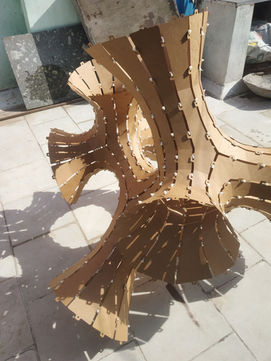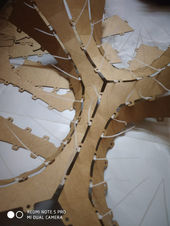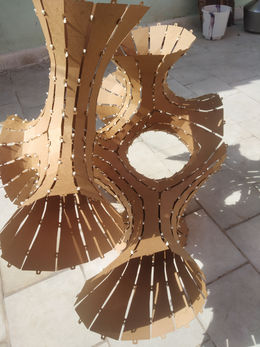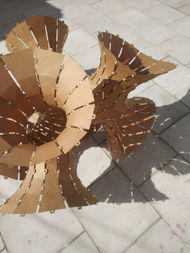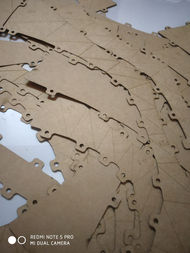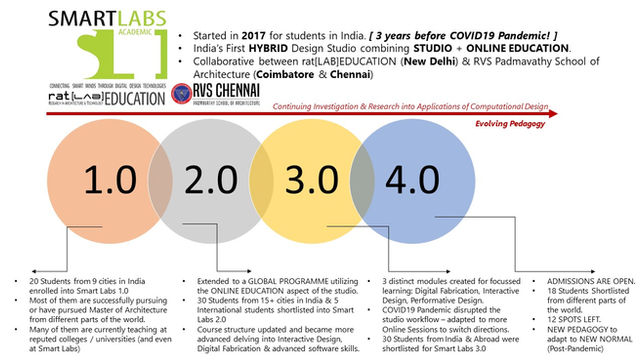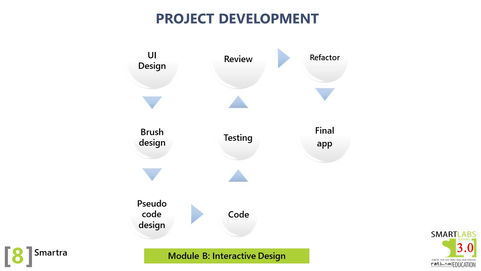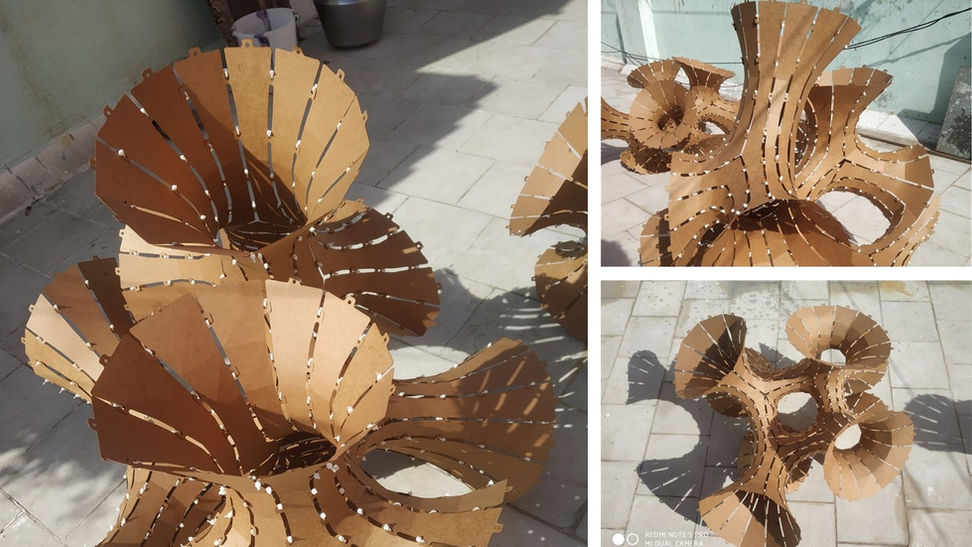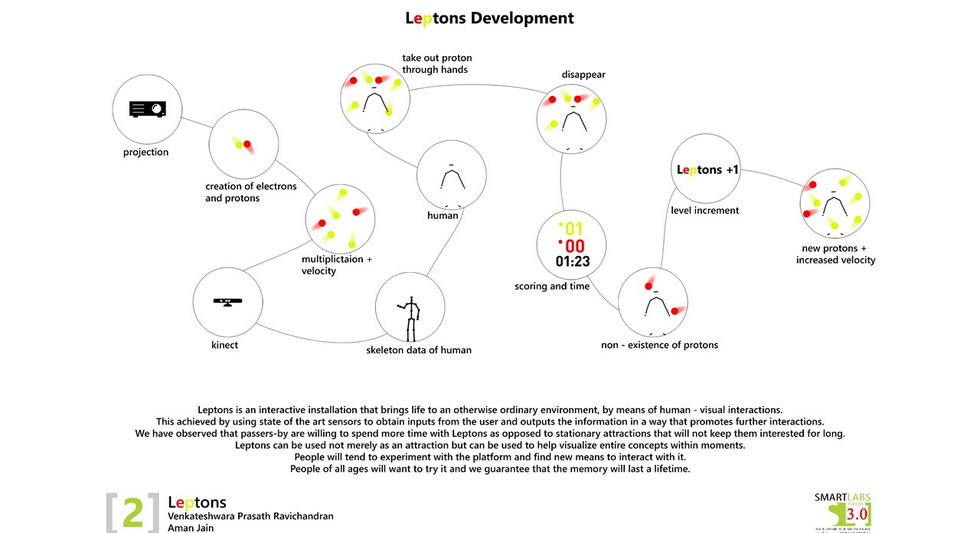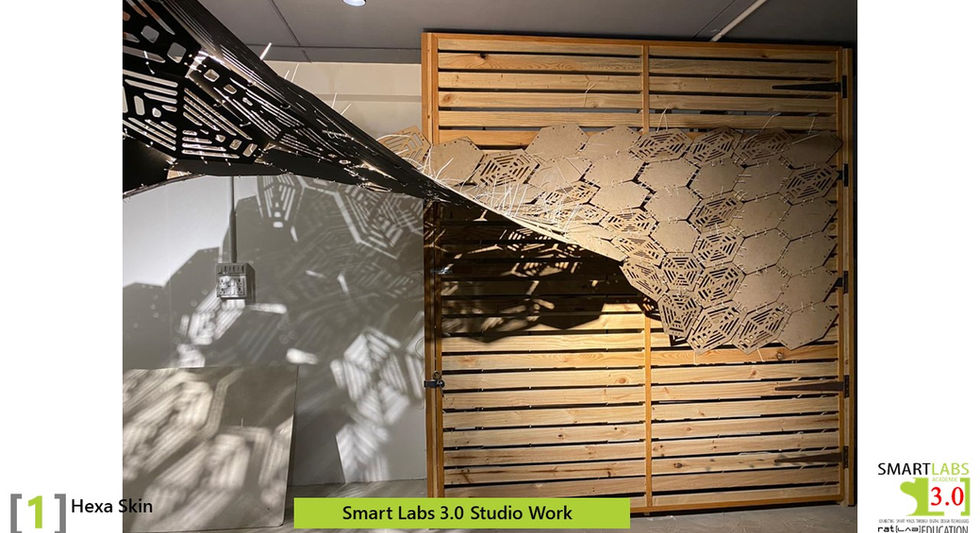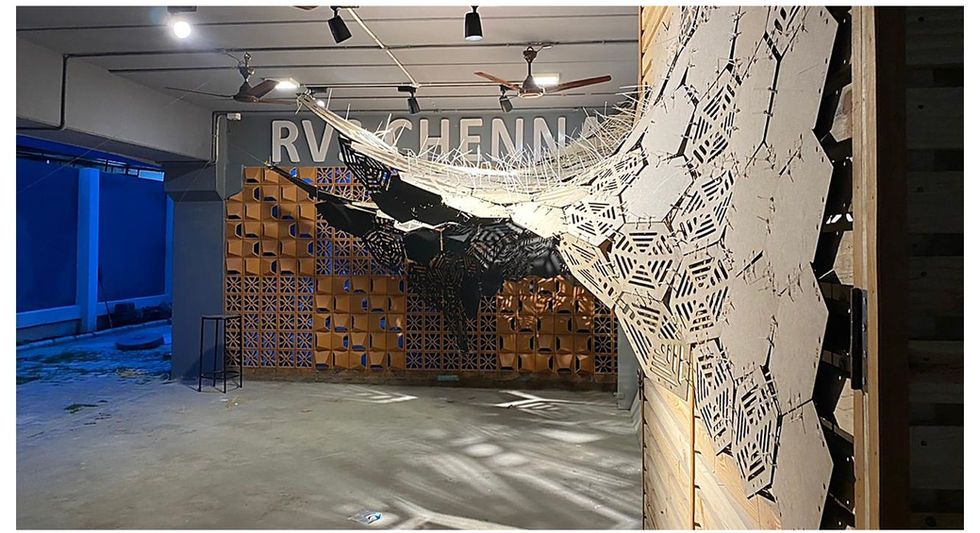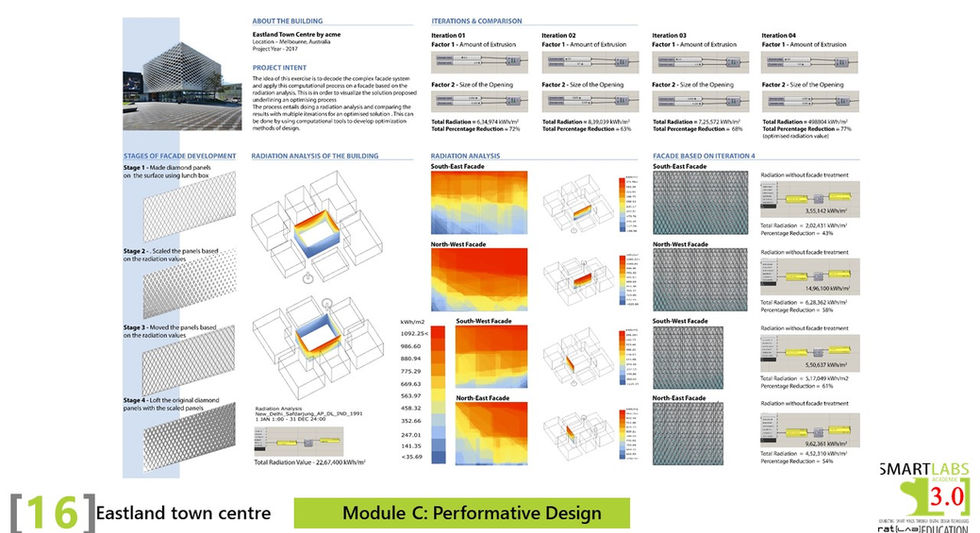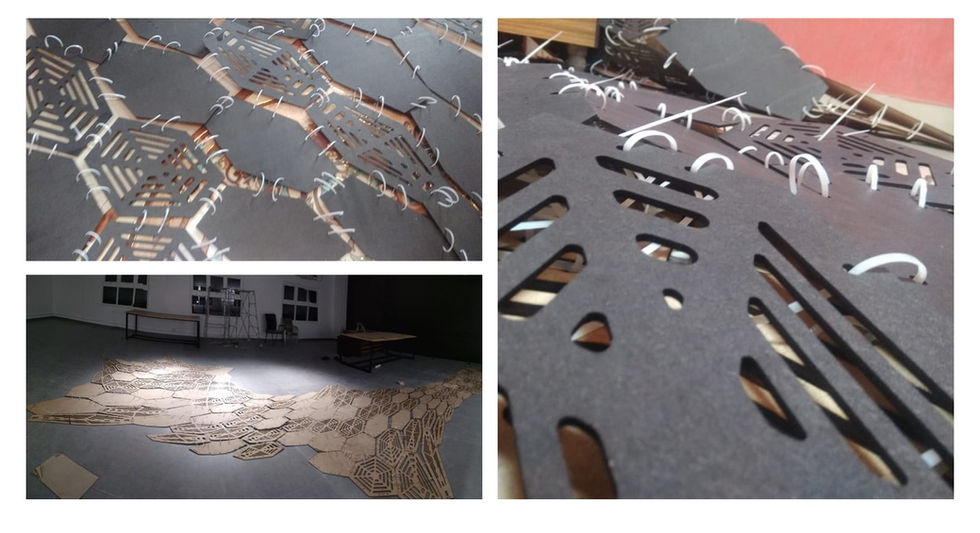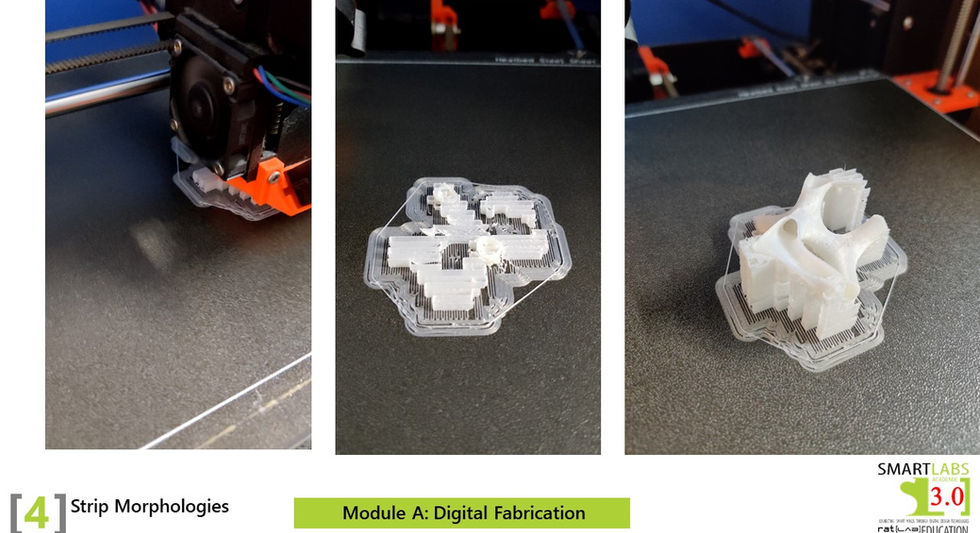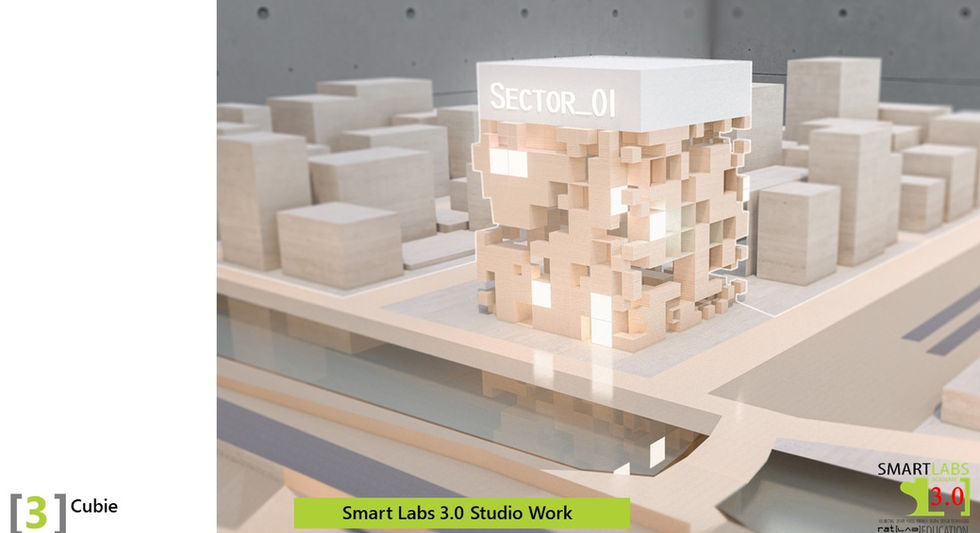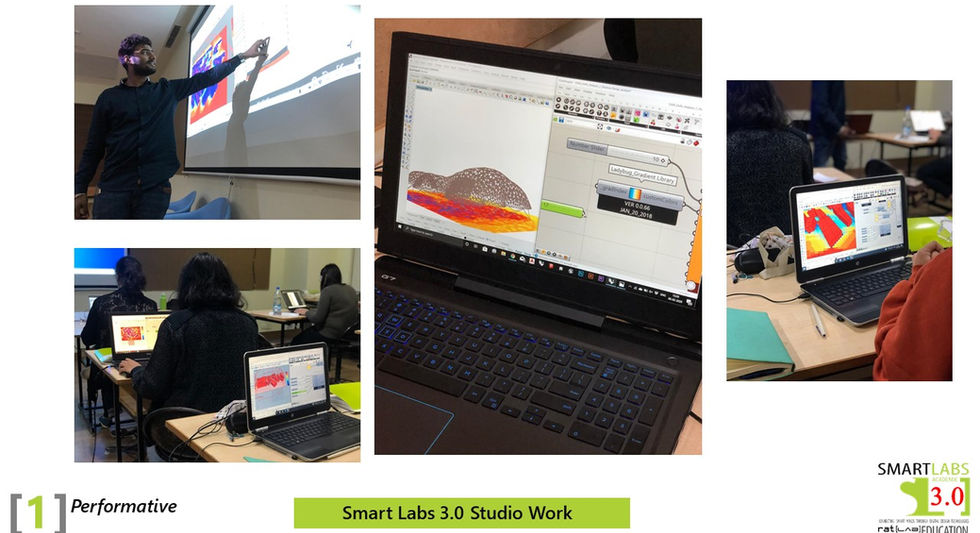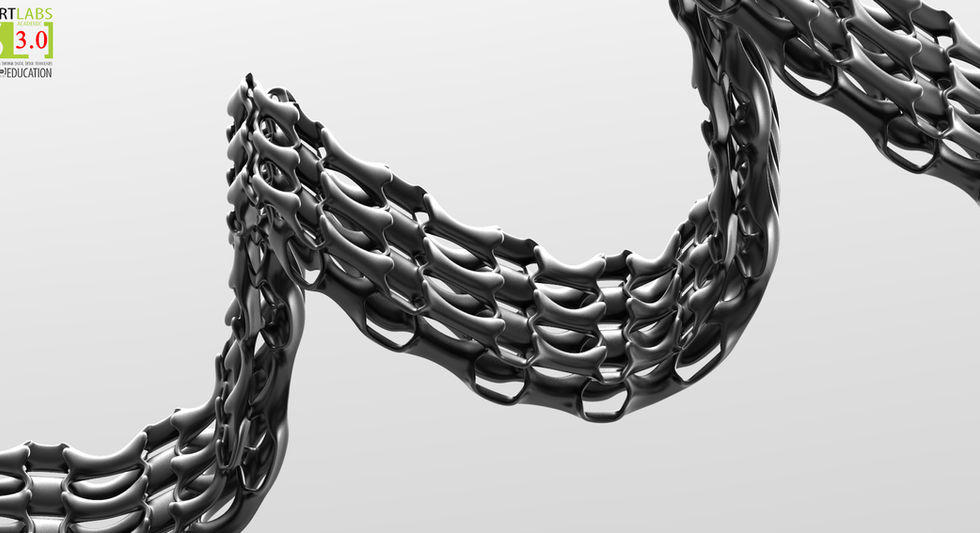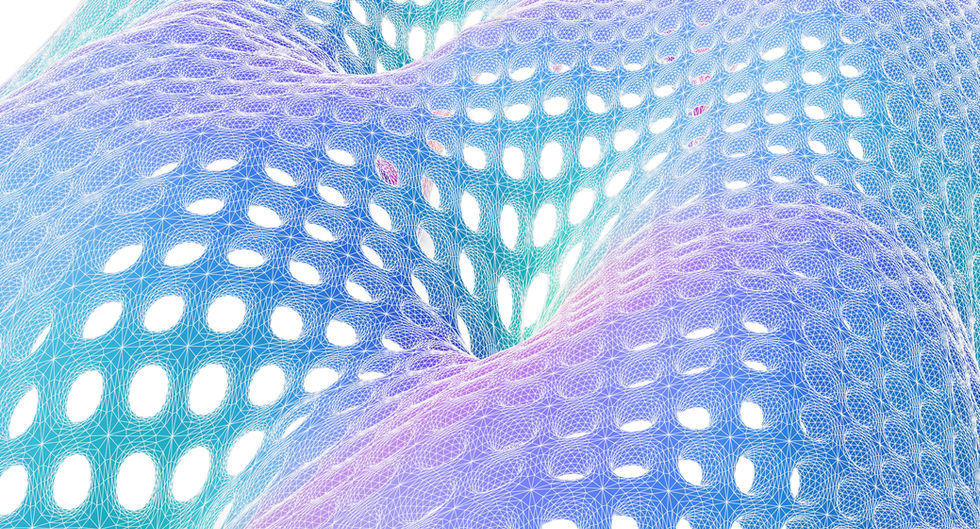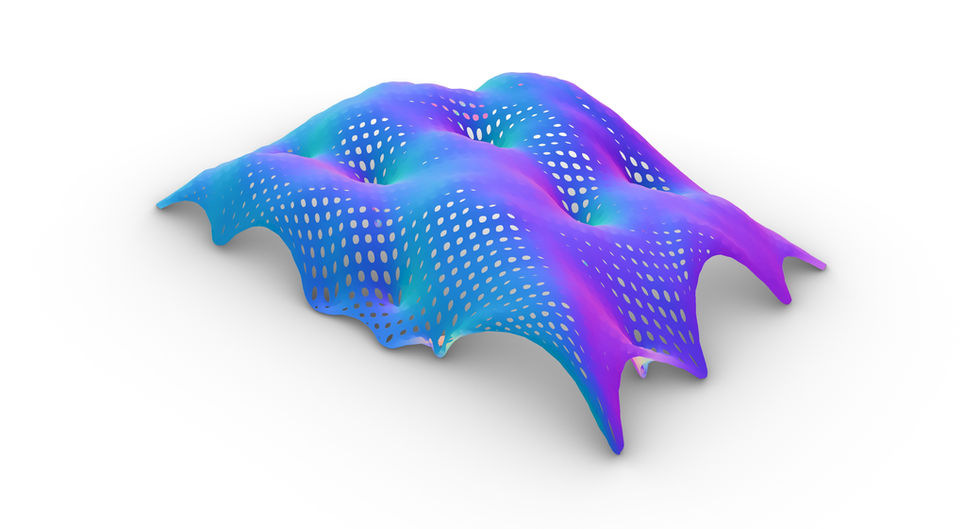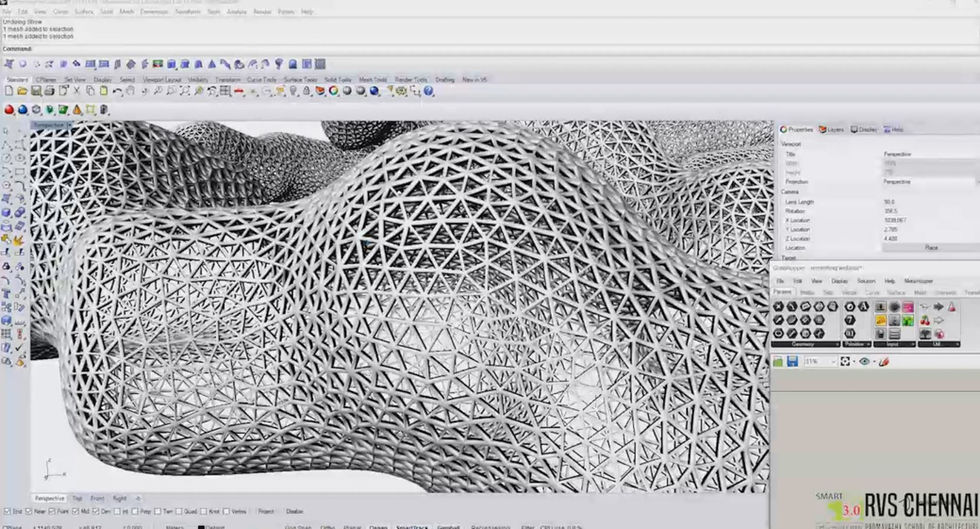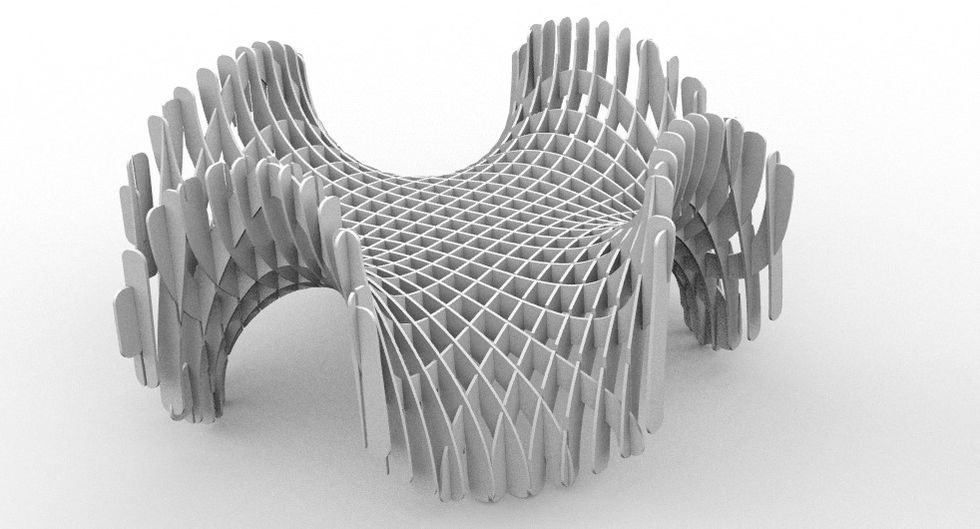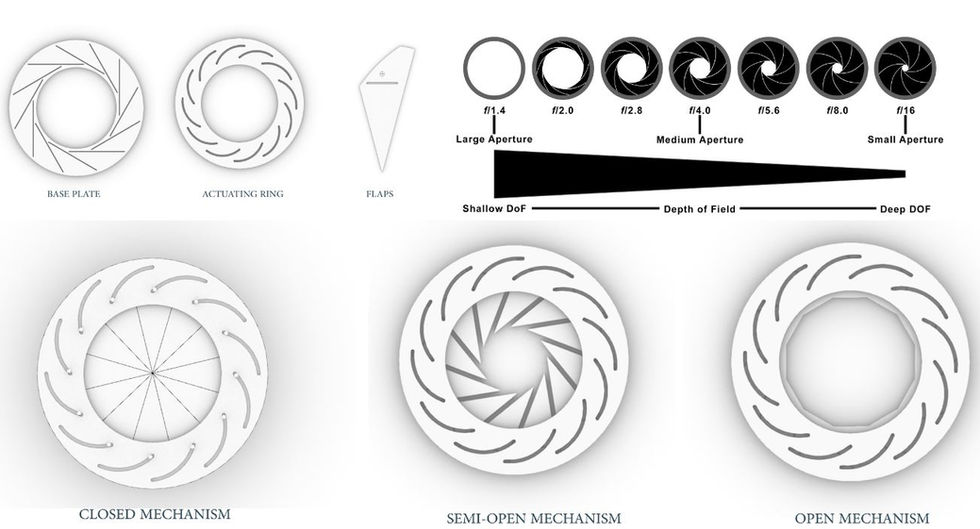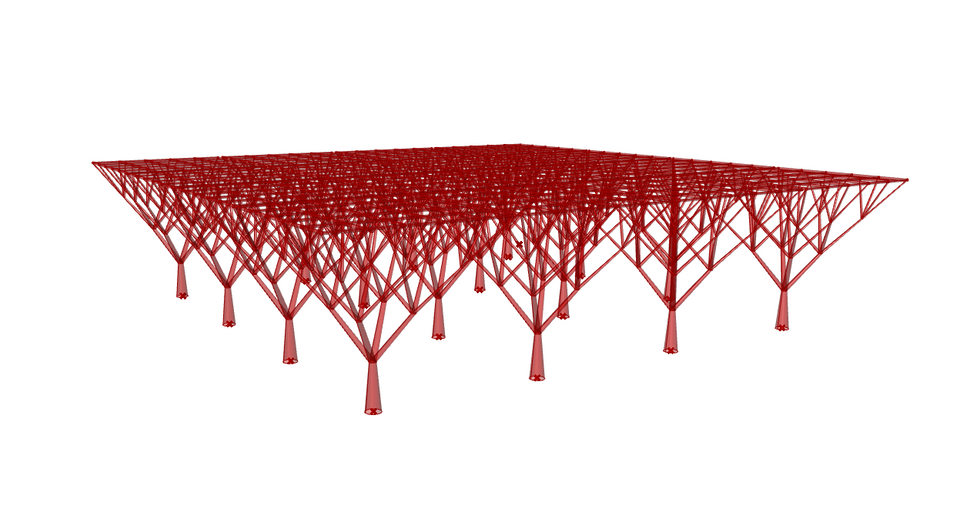

6 X Parametric Design Workshops + Studio Reviews + 10+ Online Sessions + 1 End of the Year - Showcase/ Exhibition
6 MONTH PROGRAMME ON COMPUTATIONAL DESIGN
SMART LABS 3.0 Project Showcase 2020
Multidisciplinary Applications of Computational Design & FUTURE OF DESIGN EDUCATION
The year 2020 has been an year of challenges, unrest, revelations and uncertainties. But it has also created new opportunities and unlocked new windows towards a new prospective future.
Smart Labs 3.0 Project Showcase opens up through 3-day continuing sessions of online project showcase through a series of free talks & discussions about FUTURE OF DESIGN EDUCATION. The project showcase would celebrate the works of students explored through the hybrid programme that lasted almost 1 year (with intermittent gaps & disruptions due to the pandemic). During the third batch of Smart Labs Programme, Computational Design skills were taught through a series of studio and online engagements such as Natural Systems / Biomimetics, Complex Parametric Modelling, Dynamic Remeshing, Environmental Simulations, Interactive Systems, Concrete 3D Printing, Laser Cutting, Fabrication Data Management, to name a few processes. A digital exposition curated online would showcase a permanent imprint of the work-in-progress by students demonstrating the exploratory and multidisciplinary nature of the studio. Physical prototypes as installations, furniture, lighting elements and architectural models would be displayed at the Exhibition Space, RVS School of Architecture, Chennai, open to public, and archived for online viewing. The exhibition space is envisaged as an extension of the virtual space, while the virtual space (online showcase) is an extension of the physical exhibition space, conceptually manifested as a dual-format exposition, as the third batch of SMART LABS culminates, with APPLICATIONS OPEN for Smart Labs 4.0 (Batch of 2021).
The 3-day day webinar / summit is fueled by LIVE DEBATES on each-day with professionals and experts from different parts of the world to discuss about opportunities and challenges of design education. The sessions are FREE to attend and would be streamed LIVE through Smart Labs’ platforms.

PROJECT SHOWCASE 2020 // LAUNCHING on 24th Oct 2020

Schedule//
Friday, 23rd Oct 2020 | 4 PM to 6 PM IST // 10:30 AM to 12:30 PM GMT |
How do millennials respond to Online Education?
Panellist // Hamza Shaikh + Faisal U-K & Curator // Sushant Verma
The changing times and new age technologies brings in lot of opportunities for the millennials. Millennials prefer a broad spectrum of learning strategies and systems. With heavy expectations there comes a lot of drawbacks too; Having shorter attention spans, less concentration powers and getting bored easily, the new age kids require a learning system with less boring theoretical lectures and more interactive learning techniques.
Saturday, 24th Oct 2020 | 4 PM to 6 PM IST // 10:30 AM to 12:30 PM GMT |
How to prepare yourself before pursuing Post graduation?
Panellist // Abhishek Bij + Vishu Bhooshan & Curator // Sushant Verma
One should never stop gaining knowledge, and pursuing Post Graduation leads to enhancement of one’s critical, statistical, analytical, industry-specific skills etc. After 5 years of class room education, and working on field one develops different skill set and gain interests individually in particular fields, Gaining further knowledge in the interested stream and pursuing Post graduation will help in changing careers, gaining a higher post, potentially boosting one’s skill set etc
Sunday, 25th Oct 2020 | 4 PM to 6 PM IST // 10:30 AM to 12:30 PM GMT |
What does the Future of Online Education look like?
Panellist // Pradeep Devadass + Reeveezee Antony & Curator // Sushant Verma
Online Education provides time saving, cost effective procedure for any career streams. It provides a platform for students and professionals with the flexibility to improve and update their skill set and gain knowledge of various streams. It ultimately makes people responsible, increases self-discipline and motivation to learn. Online Education allows for a better balance of work and studies at one’s comfort and finger tips.
DAILY SESSION PLAN//
30 mins - Smart Labs 3.0 Project Showcase by Sushant Verma
1 hour - Live Debate with Guest Panellists
30 mins - Future of Smart Labs - 4.0 Overview
\\PROJECT SHOWCASE 2020 //

Smart Labs 3.0 // Studio Gallery
Smart Labs 3.0 // Studio Gallery
"EXCELLENCE IN COMPUTATIONAL DESIGN"- AWARDS WILL BE GIVEN TO BEST THREE MERITORIOUS PROJECTS FROM THE STUDIO
ABOUT/
Smart Labs 3.0 is designed as a collaborative collective between rat[LAB]EDU and RVS School of Architecture, Chennai
It is an Integrated Programme to introduce basic, intermediate and advanced computational design techniques,
methods, workflows on a 6 month basis.
This programme is designed at par with any global school within the domain of computation and is envisioned to fill
the missing gap in the educational curriculum by bridging academia and practice.
This Integrated programme shall focus on inculcating the following assets as a part of syllabus:
Computational Thinking
Parametric Design Methods
Digital Fabrication Techniques and Optimization Strategies
Environmental Strategies using Computational Design
Introduction to Structural Optimization & Simulation
Building Skins and Facades
Live projects by rat[LAB] Studio will be incorporated in the syllabus to create involvement opportunities for students.
COURSE COMPLETION CERTIFICATES WILL BE PROVIDED AT THE END OF THE SEMESTER









SCHEDULE /
SS01
SEPT 2019
WORKSHOP 01
SS02
OCT 2019
WORKSHOP 02
SS03
NOV 2019
WORKSHOP 03
SS04
DEC 2019
ADVANCED
STUDIO
SS05
JAN 2020
FABRICATION STUDIO
SS06
FEB 2020
CURATION
+EXHIBITION
*The schedule is flexible and subject to finalize after starting of THIRD BATCH.
Schedule for Smart Labs 3.0// FULL SEMESTER
SS- Studio Session
OS- Online Session
OS01 - Sept/Oct 2019 (ONLINE INDUCTION & PREPARATION)
SS01 - Chennai
8th, 9th, 10th November 2019 (Friday, Saturday, Sunday)
OS02 - Nov 2019
OS03 - Nov 2019
SS02 - New Delhi
30th Nov & 1st December 2019 (Saturday, Sunday)
OR
7th & 8th December 2019 (Saturday, Sunday)
OS04 - Dec 2019
OS05 - Dec 2019
SS03 - Chennai
28th & 29th December 2019 (Saturday, Sunday)
OR
4th & 5th January 2020 (Saturday, Sunday)
OS06 - Jan 2020
OS07 - Jan 2020
SS04 - New Delhi
1st & 2nd February 2020 (Saturday, Sunday)
OS08 - Feb 2020
OS09 - Feb 2020
SS05 - Chennai
29th Feb & 1st March 2020 (Saturday, Sunday)
OR
7th & 8th March 2020 (Saturday, Sunday)
OS10 - March 2020
OS11 - March 2020
OS12 - April 2020
SS06 - Chennai
9th ,10th & 11th April 2020 (Thursday, Friday, Saturday)
SMART LABS EXHIBITION 2020 - Chennai
11th, 12th, 13th April 2020 (Saturday, Sunday, Monday)
[EXHIBITION WILL CONTINUE & REMAIN OPEN TO PUBLIC FOR 3 MONTHS)
*All studio and online sessions are bound to be re-adjusted as per batch decisions in co-ordination with the Studio Director & Academic Co-ordinator.
** Online Sessions date & timings will be decided in every preceding Studio Session and as per availability of Online Mentors or Tutors.
*** The schedule has the scope to be spread across another month to extend till May 2020, if required.
MODULE A: Digital Fabrication
The module will give an overview of digital fabrication technologies that are relevant to architecture and design. 3D Printing, CNC routing, Laser Cutting, among other emerging technologies will be showcased and demonstrated with specific group tasks and exercises that would involve the usage of such technologies. Students will chose to demonstrate and test out available tools to develop their projects as prototypes and installations for Exhibition. In collaboration with Tvasta, Concrete 3D Printing would also be introduced with some hands-on sessions in Chennai, leading to 3D Printed concrete spatial intervention for the Exhibition.
SMART LABS 3.0 STUDIO AGENDA
The studio will revolve around the central idea of Computational Design and extend its arms into specific modules focussing on distinct aspects of Design Technology and its application in architecture, design and art. Students will develop their skillset by learning software like Rhinoceros3D and Grasshopper3D at basic, intermediate and advanced levels in the initial studio sessions, supported by parallel online sessions by tutors & global mentors. Towards the later half of semester (SS04 onward), modules will be introduced where each student will chose their preferential module to focus on, which will lead to an output for the exhibition after SS06.

MODULE B: Interactive Design
Today, interaction with digital and virtual environment through smart devices has become part of our daily lives. Through our engagement with digital media, mostly driven by social media, gaming, interactive art and performances, passive recipients turn into active participants, becoming creative stakeholders. Interactive environments go beyond the static physical boundaries by introducing a layer of data and information that makes our surroundings smarter and responsive. Physical Computing studio will give students an essential introduction to the world of open source programming languages and physical computing. Students will simultaneously learn about basic coding / scripting tools and how to create devices that interact with their environment using sensors and actuators. This will equip students with the necessary hardware / software knowledge to integrate interfaces, visualizing methods, data sensing, and actuations to conduct more advanced research and architectural proposals with embedded technology. We will focus into two main topics, Sensors and Actuators (using Arduino) and basics of Processing to generate interactive media and visualized data in public spaces. The module will conclude with an interactive project that enhance a space with smart features, as students will be pushed to create a synchronous and meaningful interaction between the digital and physical realms.
Software: Processing, Arduino IDE
Hardware: Students will be required to bring their Arduino kit for hands-on prototyping.

MODULE C: Performative Design (Building Performance)
This module will delve into the scientific aspects of building performance with respect to Sustainability objectives such as Environmental Analyses and Visibility Optimization Analyses using Computational Methods. Some aspects of Structural Optimization, form finding, multi-objective optimization will also be studied using Grasshopper3D and advanced plug-ins. Students choosing to focus on building performance aspects will explore projects digitally and develop optimization methods of design and evaluating for a showcase in the exhibition.

![rat[LAB] Logo](https://static.wixstatic.com/media/620f22_133c4fae783c4e2dbc4d10827a47885e~mv2.png/v1/crop/x_0,y_413,w_6019,h_1108/fill/w_300,h_50,al_c,q_85,usm_0.66_1.00_0.01,enc_avif,quality_auto/rat%5BLAB%5D%20Logo.png)


